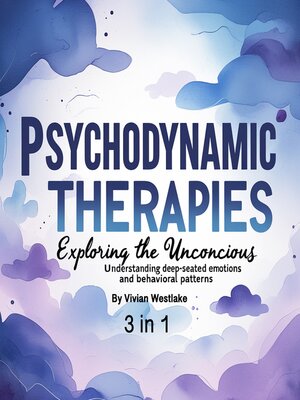Psychodynamic Therapies
audiobook (Unabridged) ∣ Exploring the Unconscious: Understanding Deep-Seated Emotions and Behavioral Patterns (3 in 1)
By Vivian Westlake

Sign up to save your library
With an OverDrive account, you can save your favorite libraries for at-a-glance information about availability. Find out more about OverDrive accounts.
Find this title in Libby, the library reading app by OverDrive.



Search for a digital library with this title
Title found at these libraries:
| Library Name | Distance |
|---|---|
| Loading... |
This book consists of three titles, which are:
Play Therapy - Play is a fundamental aspect of childhood, serving as a natural medium through which children explore the world, express emotions, and develop essential skills. For children facing emotional, social, or psychological challenges, play becomes more than just a recreational activity; it transforms into a powerful tool for healing and growth. Play therapy harnesses the innate creativity and spontaneity of play to address a wide range of difficulties, offering children a safe and supportive environment to work through their struggles.
Psychodynamic Therapy - Psychodynamic therapy is an approach to psychological treatment rooted in the ideas and concepts developed by Sigmund Freud and his followers. It emphasizes the importance of unconscious processes and early childhood experiences in shaping an individual's thoughts, emotions, and behaviors. This therapy aims to bring these unconscious factors into conscious awareness, helping individuals gain insight and resolve internal conflicts that may be contributing to current psychological difficulties.
Psychosocial Therapy - Psychosocial therapy is a holistic approach to mental health care that emphasizes the interconnectedness of psychological and social factors in promoting well-being and recovery. Unlike traditional approaches that primarily focus on symptom management through medication or isolated psychotherapy, psychosocial therapy addresses the broader context of an individual's life. It explores how relationships, community involvement, cultural background, and socioeconomic conditions influence mental health outcomes.







